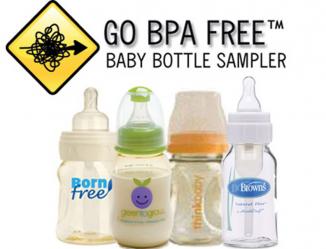Dover, DE – A chemical linked to health problems in fetuses and children will be gone from baby bottles, sipper cups and other products within a year.
Gov. Jack Markell Thursday signed legislation prohibiting the sale of Bisphenol A, better known as BPA, in children’s products in Delaware. The ban takes immediate effect for manufacturers, and gives merchants one year to rid themselves of the products.
Markell praised Sen. Bethany Hall-Long, D-Middletown, for her leadership in getting the bill to his desk.
“As a parent, I know a lot about sippy cups and the like, although it’s been a while since my kids are now 18 and 16 years old, but I did not know what BPA was before I learned about this bill,” Governor Markell told the bill’s sponsors and a group of advocates during the bill signing ceremony. “We care about kids and we care about public health. This is a commonsense bill to do away with BPA.”
During the 1960s the Food and Drug Administration deemed BPA safe and it has been used as hardening agent in a wide range of clear plastic products and as a liner for some metal food and beverage containers. In recent years, however, the chemical has been lined to neurological problems in children and conditions, such as Attention Deficit-Hyperactivity Disorder.
Those studies have led the FDA to recommend that the chemical be removed from products used by small children. The agency says adults have trace amounts of BPA in their systems, but that adult bodies are able to process and deal with the chemical although there is some evidence that it also has been linked to breast and prostate cancers. The FDA has recommended more studies on possible BPA-related health issues in adults.
“The evidence is overwhelming that early exposure to BPA can have lifelong impacts on reproduction, learning and behavior,” said Rep. Rebecca Walker, D-Middletown, the bill’s House sponsor. “This is not something where we can wait for the federal government to step up and take action. We know the harm that BPA causes children and we have an obligation to protect them. This is an important step forward.”
Although many big retailers, such as Wal-Mart, Target and Toys-R-Us, are already getting rid of products with BPA, Sarah Bucic of the Delaware Nurses Association said the need for the law is real.
“Over 200 studies have found that Bisphenol A has been linked to a number of different disorders – obesity, diabetes, some types of cancer – and the fact that stores are selecting to take it out of their product because of consumer demand really shows that this is something that should be legislated so that products remaining on the market don’t fall into stores that aren’t able to select to take Bisphenol A out of their products,” said Bucic who added the bill gives stores sufficient lead time to eliminate the products.
Delaware is the 10th state to follow Minnesota’s lead by heeding the FDA’s warnings and eliminating children’s products that use BPA. Hall-Long said the new law is an important protection for children.
“I’m very grateful that my colleagues and Gov. Markell agree that we shouldn’t take unnecessary chances with our children’s health,” Hall-Long said. “There are BPA-free alternatives to these products and I appreciate the willingness of our business community to work with us on this issue and bring them to market.”
People with questions about BPA can reference the Delaware Department of Public Health website at:
http://dhss.delaware.gov/dhss/dph/files/bisphenfaq.pdf








